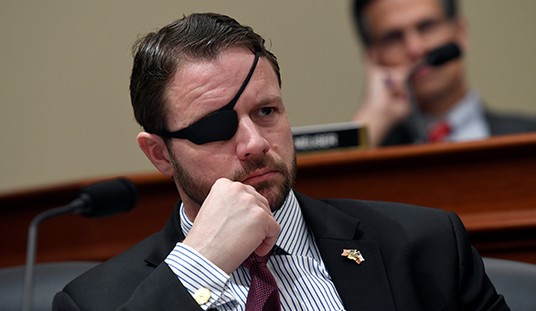A Taliban attack on a U.S. consulate in the early morning hours Friday initially highlighted longstanding fears in Congress of an accelerated withdrawal while President Obama insists that the war in the Afghanistan be ended by his hand.
Local reports of damage in Herat and the response, though, raise questions about just how much diplomatic security has been improved in the wake of the four deaths at Benghazi a year ago.
The feared repeat of a 9/11 Benghazi attack came two days after the anniversary when attackers deployed car bombs in an SUV and minivan at the gates to the U.S. consulate in northern Afghanistan, followed by a gun battle. Death tolls differed but the State Department said Friday afternoon that an interpreter was killed as well as three members of the Afghan police. As many as 20 civilians were injured by blown out windows in their homes. Seven attackers were killed.
The consulate, housed in a onetime five-star hotel, was not breached, the State Department stressed.
State Department spokeswoman Marie Harf said at today’s press briefing that the attackers started with a car bomb, followed by an RPG fired at the consulate and another car bomb.
“We are again reminded of the very real human toll exacted by this kind of terrorism,” Harf said.
“…Consulate security neutralized several suicide bombers attempting to breach the compound. The consulate’s front gate was damaged, however the consulate’s interior compound was not breached. Our security measures here were effective. The attackers were utilized. Our interior perimeter was not breached and no American lives were lost.”
Harf expressed gratitude for “the quick response of the Afghan and the ISAF security forces who secured the facility and kept our personnel safe.”
Perhaps mindful of the post-Benghazi concerns about consulate security, she quickly added, “Diplomatic security staff and contract security employees were equally a part of the response.”
She said U.S. officials do live at the compound but were “temporarily relocated to Kabul at the moment.” A U.S. Embassy spokesman in Kabul said essential personnel stayed in Herat.
“I’m not aware of any specific threat reporting leading up to the attack in Herat,” Harf said. “Our security at all of our facilities in Afghanistan always operate at the highest level because it is an active war zone. So clearly, we — it’s something we constantly review, and we’ll continue to do so.”
The consulate is closed “for the time being.”
The report from Afghanistan’s TOLO News painted a grim picture of the assault, including attackers making it past the consulate gate.
“The attack began around 5:30am when a suicide bomber detonated an explosive-laden SUV near the main gate of the consulate and then a second explosive-laden mini-van hit the gate itself, allowing five other attackers to pass the first gate and open fire on security forces inside the compound,” TOLO’s Saboor Ghafoory reported.
“The assailants engaged in a gun-battle with consulate security personnel and the Afghan forces for nearly two hours until they were finally shot and killed. The scene was reportedly secured by 7:30am.”
Afghanistan’s first 24/7 news channel said Afghan National Army and special unit soldiers responded to the consulate to assist the guards and U.S. forces stationed there, yet reported “after the attack ended, American Special Forces came to the site and entered the consulate to secure the building.”
A reporter on the scene just minutes after the first explosion, TOLO’s Jawed Zyratjahi, said the main gate was broken and windows were blown out of the seven-story consulate. “The magnitude of the explosions in front of the consulate gate were so immense that the windows of houses within 1 kilometer of the attack were shattered as well.”
[jwplayer config=”pjmedia_main” mediaid=”174151″ width=”590″ height=”360″]
It’s the second time the consulate has come under attack since it opened in 2010, Ghafoory noted. A rocket attack damaged part of the building last year.
The Herat consulate is near two popular city parks and Herat University, meaning the early-morning attack wasn’t intended to inflict civilian casualties but gain Benghazi-style entry.
Afghan news agency Pajhwok reported that the car bombs were followed by a third attacker wearing a suicide vest who made it inside the gates before he detonated. “The attackers wore uniforms similar to those of the consulate guards,” the report said, citing the local police chief. “…Helicopters were seen hovering over the consulate after the operation had ended and two copters were seen landing on the consulate premises.”
The Taliban claimed responsibility and extrapolated the damage as they usually do: “A martyrdom attack on the US consulate in Herat city has caused the enemy forces heavy losses. … Following the explosion, 8 other lions of Islam equipped with explosives vests as well as heavy and light weapons penetrated inside the building and took up positions from where they targeted the enemy forces inside as well as those approaching from outside, sparking a three and a half clash during which some 27 foreign invaders were killed and wounded as well as 17 combined hireling troops killed and 35 others wounded besides the enemy sustaining heavy damage including 12 vehicles destroyed.”
“We have proved with this attack that the Americans are safe nowhere,” Taliban spokesman Qari Yousaf Ahmadi said in a statement issued to Pajhwok Afghan News.
Herat Gov. Said Fazel Waheed said “the complexity of actions today were beyond the capability of an Afghan.”
Harf wouldn’t say that the Taliban were behind the attack. “I would strongly note how we worked very closely and very well with them to secure this facility and to neutralize the attackers,” she said. “…I would, again, remind everyone that there were no American casualties at this point, and just no American casualties, period, I should say.”
“We are grateful for the quick response of the Afghan and ISAF security forces who secured the facility and kept our personnel safe. We thank the governor of Herat and the government of Afghanistan for their support and ongoing partnership,” Ambassador James Cunningham said in a statement.
There wasn’t much reaction on Capitol Hill over the first strike on a U.S. consulate since Benghazi.
Senate Foreign Relations Committee Chairman Robert Menendez (D-N.J.) said it showed the need to pass new embassy security legislation.
“Days after we paused to honor four brave Americans killed last year in Benghazi and pledged to move forward with renewed vigor to properly fund and secure our diplomatic posts overseas, we are reminded yet again of the severe challenges our personnel face, especially in high-risk, high-threat facilities,” Menendez said.
“This unconscionable act cannot go unpunished and our forces, working with Afghan counterparts, must track down and strike back against those responsible,” he continued. “At this critical juncture in our engagement in Afghanistan, attacks against our facilities cannot be tolerated by the Taliban or any other insurgent group.”









Join the conversation as a VIP Member